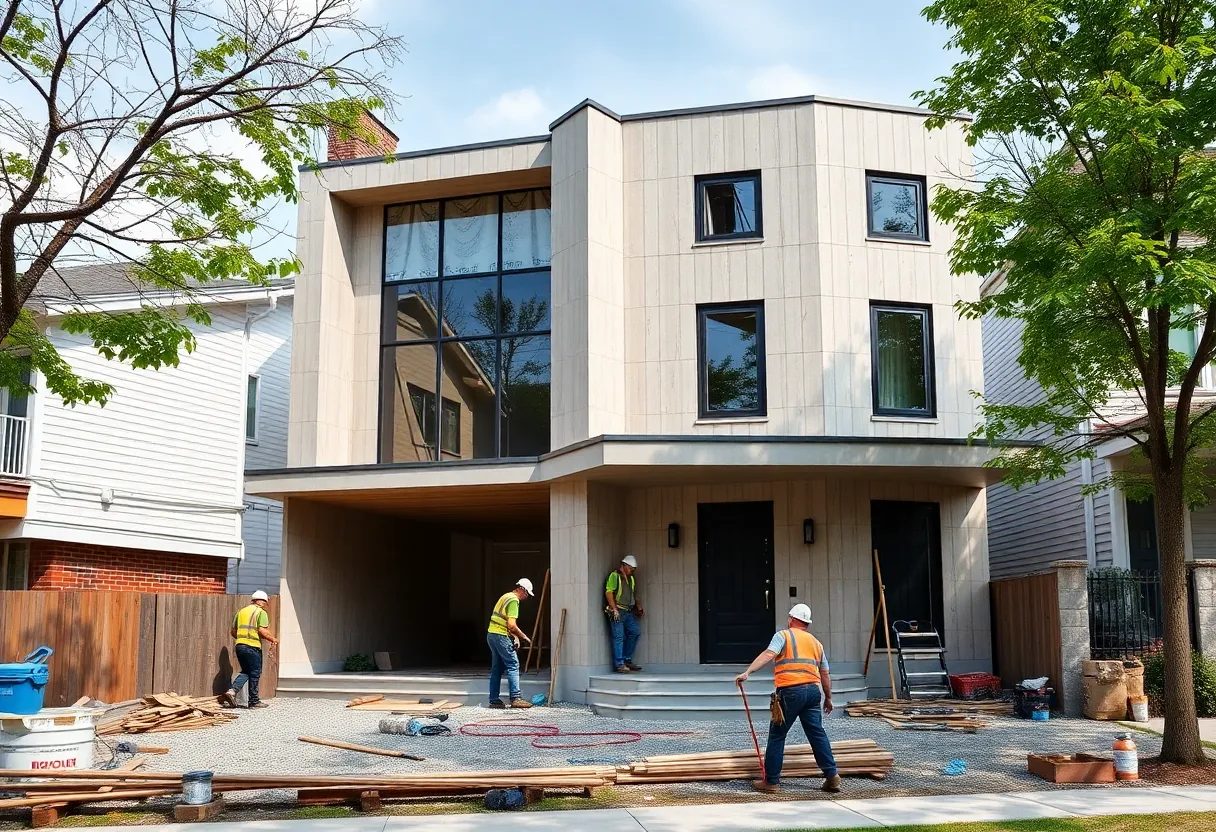How to Avoid Buyer’s Remorse: Essential Tips for First-Time Homebuyers
Entering the real estate market as a first-time homebuyer can be both exciting and daunting. The influx of options, financial considerations, and emotional investment often lead to decision-making stress. A common challenge faced by new homeowners is buyer’s remorse: the regret or doubt that surfaces after completing a purchase.
Preventing buyer’s remorse requires strategic planning, thorough research, and disciplined decision-making. This guide offers actionable insights to help first-time buyers navigate the process confidently and make well-informed choices that they can stand behind long-term.
Understanding Buyer’s Remorse
What Is Buyer’s Remorse?
Buyer’s remorse is the post-purchase feeling of regret or second-guessing, often centered around the financial or emotional implications of a property. It typically manifests when buyers realize the home does not meet their expectations, exceeds their budget, or they overlooked critical details during the decision-making process.
Why Is It Common Among First-Time Buyers?
- Lack of experience: Inexperience leads to overlooked flaws or underestimated costs.
- Emotional decision making: Emotions can override logical considerations, causing impulsive decisions.
- Financial pressure: Time constraints or competition can reduce thorough evaluation.
- Limited market knowledge: Insufficient understanding of market conditions and pricing can result in overpayment or choosing unsuitable properties.
Practical Strategies to Prevent Buyer’s Remorse
1. Establish Your Financial Boundaries
Before engaging in property searches, determine your budget realistically. Consider not only the purchase price but also additional costs such as taxes, insurance, maintenance, and potential renovations. Use a mortgage calculator to understand monthly payments aligned with your income and long-term financial goals.
Getting pre-approved for a mortgage provides clarity on your borrowing capacity and demonstrates seriousness to sellers. Importantly, avoid stretching your finances to secure a property; your comfort with ongoing payments is crucial to long-term satisfaction.
2. Prioritize Critical Criteria
Develop a detailed list of must-have versus nice-to-have features. Focus on essential factors such as location, size, layout, school district, and proximity to work or amenities. This targeted approach reduces impulse purchases and keeps your goals aligned.
Maintain key information during property visits, noting practical aspects like storage, lighting, and noise levels. This detailed insight helps prevent overlooking issues that could later trigger regret.
3. Conduct Comprehensive Due Diligence
Inspection and Appraisal
Never waive inspections. Hire qualified professionals to evaluate the property’s structure, systems, and potential repairs. A detailed report identifies costly defects early, giving you leverage for negotiations or reconsideration.
Order an independent appraisal to verify the market value. Paying above appraised value increases financial risk and potential regret if the market shifts.
Research Neighborhoods
Assess neighborhood stability, growth prospects, safety, and future developments. Visit at different times to gauge traffic, noise, and community vibe. Engage with residents when possible, and review local planning initiatives that could impact your lifestyle or property value.
Review Local Market Trends
Understanding current real estate dynamics helps you determine whether a property is competitively priced and when market conditions favor buyers or sellers. This knowledge prevents overpaying and aligns your purchase with market realities.
4. Engage Qualified Professionals
Work with experienced real estate agents, attorneys, and mortgage brokers. They bring market insights, help negotiate better deals, and clarify contractual terms. Their expertise reduces the likelihood of overlooking critical details.
5. Avoid Rushed Decisions
Allow Yourself sufficient time to evaluate properties thoroughly. Resist pressure from aggressive agents or sellers pushing for quick closures. Deliberate decision-making minimizes impulsivity and enhances satisfaction with your choice.
6. Take Your Time for Reflection
After viewing properties, step back and assess whether the home aligns with your long-term goals. Ask yourself if you feel comfortable with the size, layout, and location. Avoid making emotionally driven decisions, and consider sleeping on major choices.
7. Prepare for the Unexpected
Build a contingency budget for unforeseen expenses, such as repairs or appraisal adjustments. Having financial buffers prevents regrets stemming from unexpected costs.
Long-Term Tips to Sustain Satisfaction Post-Purchase
1. Make Adjustments Thoughtfully
Post-purchase modifications, like renovations or aesthetic changes, should be planned carefully. Ensure that changes are manageable and enhance your overall satisfaction rather than accommodate unmet expectations.
2. Foster a Sense of Community
Engage with neighbors and local organizations. Feeling connected to your community fosters a sense of belonging and reduces doubts related to social isolation or neighborhood issues.
3. Regular Maintenance and Upkeep
Consistent upkeep preserves property value and prevents small issues from escalating into costly repairs. Well-maintained homes contribute to ongoing satisfaction.
Recognizing and Addressing Post-Purchase Discontent
1. Identify the Root Cause
If buyer’s remorse surfaces, evaluate whether issues are related to unmet expectations, financial strain, or overlooked property faults. Distinguishing causes guides appropriate actions.
2. Seek Professional Advice
If dissatisfaction stems from property problems, consult specialists such as contractors or legal advisors to explore remedies. For financial concerns, speak with your lender or financial planner.
3. Consider Resale Options
If regret persists, assess the possibility of relisting the property. Sometimes, strategic resale or improvements can reposition your investment and improve satisfaction.
Conclusion
Smart, deliberate planning is the cornerstone of avoiding buyer’s remorse for first-time homebuyers. By establishing clear financial boundaries, conducting thorough due diligence, and prioritizing critical factors, new homeowners can make confident, informed choices. Recognizing that a home purchase is a long-term commitment emphasizes the need for patience and reflection.
Maintaining key information and avoiding unnecessary filler or repetition ensures clarity and effective decision-making throughout the process. Ultimately, a well-informed approach fosters satisfaction, secures your investment, and builds confidence in your new homeownership journey.
Author: STAFF HERE WASHINGTON DC
The WASHINGTON DC STAFF WRITER represents the experienced team at HEREWashingtonDC.com, your go-to source for actionable local news and information in Washington, DC, and beyond. Specializing in "news you can use," we cover essential topics like product reviews for personal and business needs, local business directories, politics, real estate trends, neighborhood insights, and regional news affecting the area—with deep expertise drawn from years of dedicated reporting and strong community input, including local press releases and business updates. We deliver top reporting on high-value events such as the National Cherry Blossom Festival, Kennedy Center Honors, and the Washington Auto Show. Our coverage extends to key organizations like the Greater Washington Board of Trade and Destination DC, plus leading businesses in government contracting and technology that power the local economy such as Lockheed Martin and Amazon. As part of the broader HERE network, we provide comprehensive, credible insights into the dynamic landscape of the Washington metropolitan area.




